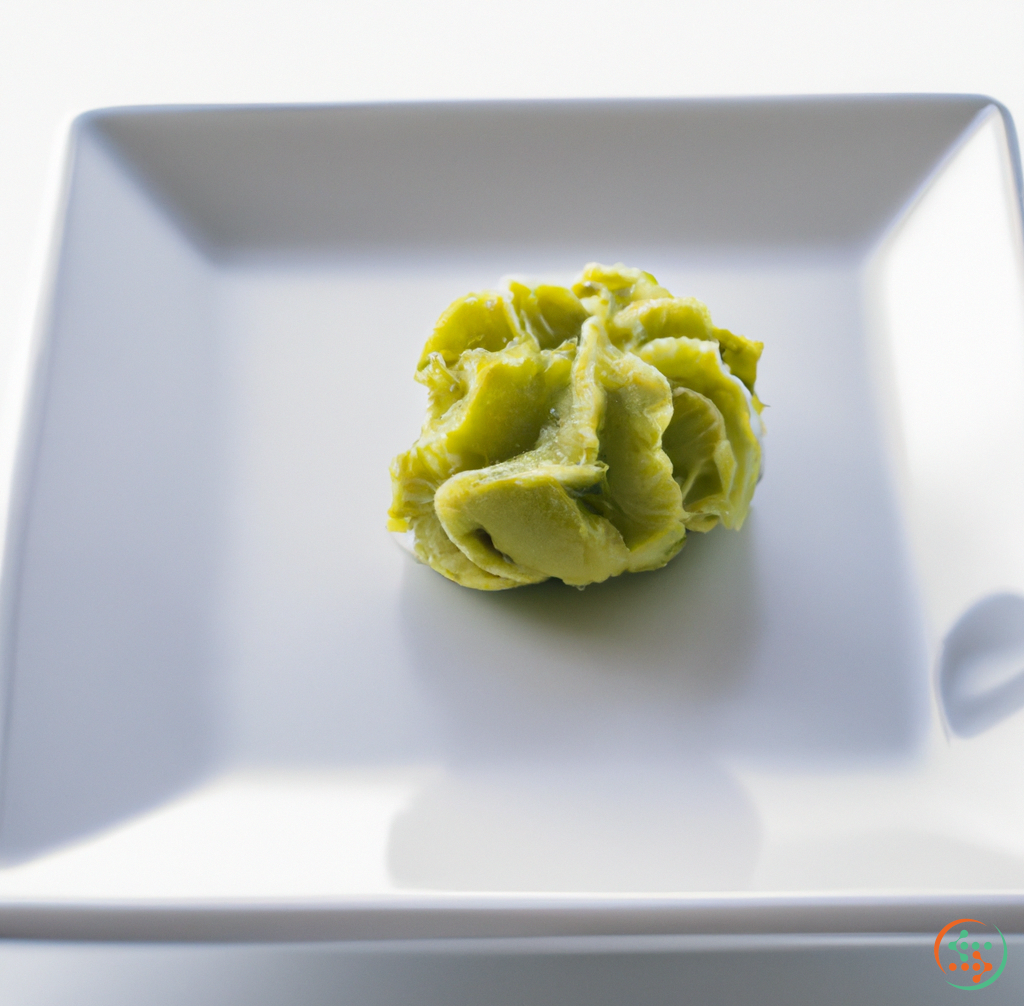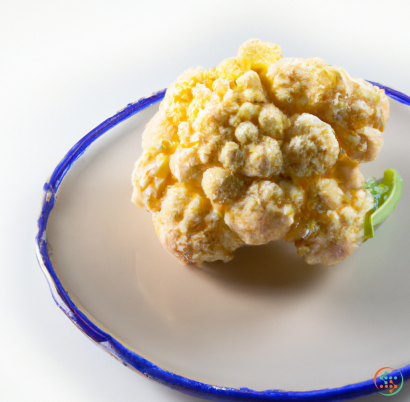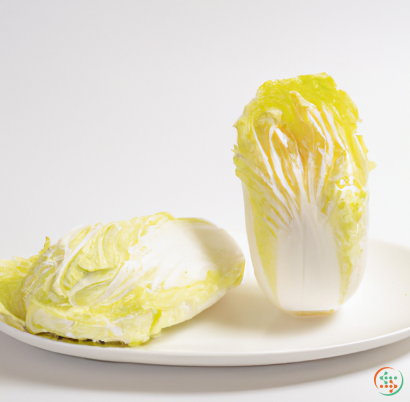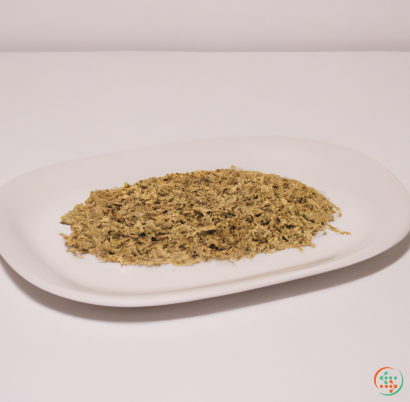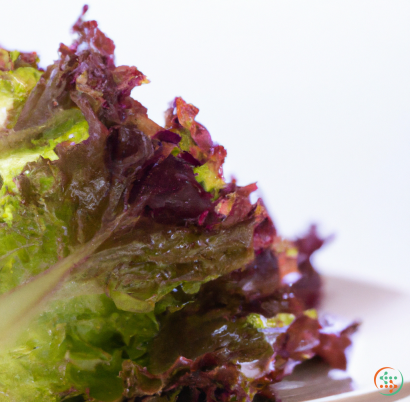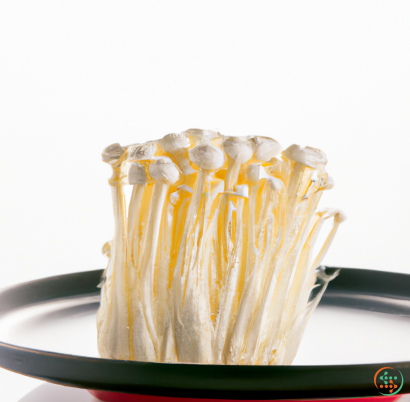Wasabi: Complete Mineral Profile
Wasabi: Considered a good source of minerals?
Yes, Wasabi is a good source of minerals. It contains calcium, iron, magnesium, phosphorus, potassium, sodium, and zinc. Additionally, it is rich in dietary fiber, vitamin C and other compounds that have important health benefits.
Calcium is important for maintaining strong bones, teeth and muscle coordination. It helps to regulate the body's acid-base balance and artery flexibility. Iron is essential for red blood cell production and keeping energy levels high. Magnesium is important for nerve impulses, regular heartbeat, and energy production by cells. Phosphorus is required for structural stability in cells and also helps with metabolism of fat and carbohydrates. Potassium assists in nerve transmission, heartbeat regulation, and fluid balance. Sodium helps keep fluids balanced at a cellular level and facilitates nutrient transfer across cell walls. Zinc increases immune system function and is essential for many enzymatic processes in the body.
Wasabi has significant amounts of antioxidants like catechin, epicatechin, and procyanidin which all help protect from damage caused by free radicals. Free radicals can increase inflammation, cause cell death, and lead to degenerative diseases. Dietary fiber aids digestion and keeps your gut healthy. Vitamin C improves skin texture and promotes collagen synthesis. It also helps protect DNA and cell membrane structure. Finally, Wasabi contains sulfur compounds such as allyl isothiocyanates which are associated with improved cardiovascular health.
Wasabi ‐ Mineral Information
Introduction
Wasabi, a condiment made from the grated root of an aquatic plant known as Wasabia japonica, is most commonly associated with Japanese cuisine. This pungent paste has many uses in Japan and its famous kick inspired sushi rolls across the world. It adds flavor to dishes while providing numerous minerals that our bodies need to maintain proper nutrition. In this paper, we will examine some of these essential minerals obtained from eating wasabi and their associated health benefits.
What are Minerals?
Minerals are defined as elements derived from natural sources found in rocks or the soil. They have specific physical and chemical properties important for optimal health and well-being of living organisms. Unlike vitamins, which can be produced by plants or animals, minerals cannot be synthesized in the body; humans must consume them through food sources such as whole grains, nuts, fish and vegetables. Consuming minerals provides the human body with micronutrients and trace elements necessary for a variety of biological functions.
Health Benefits of Eating Wasabi
Rich in antioxidants and minerals, eating wasabi is said to provide beneficial effects on the body. Phytonutrients and sesquiterpenoids help keep cells healthy and aid in fighting off disease and infection. Vitamins C and E are believed to help neutralize free radicals present in the environment. The nutrient composition of Wasabi also lends itself to conferring antioxidant and anti-inflammatory properties. Furthermore, there are many minerals obtainable through eating Wasabi, several of which will be discussed in detail below.
Calcium
One mineral we obtain from wasabi is calcium, only second to phosphorus as the most abundant mineral in the human body. Calcium plays an integral role in our physiology as 99% of it is typically stored in our teeth and bones. Calcium helps build strong bones, ensuring normal bone growth and progression throughout life. The remaining calcium in the blood is used to facilitate nerve conduction and muscular contraction, allowing us to move freely. A two teaspoon serving of wasabi contains approximately 11 mg of calcium, 8% of the daily value recommended for adults over 19 years old.
Magnesium
The mineral magnesium is involved in over 300 biochemical reactions in the body and contributes to overall energy metabolism. Magnesium works hand in hand with other nutrients like vitamin D to enable our muscles and nerves to orchestrate normal, coordinated movement. Magnesium deficiency can lead to irritability and anxiety due to low levels of GABA, one of our primary calming neurotransmitters. Fortunately, having small amounts of wasabi - 2 teaspoons – adds roughly 3 mg of magnesium — matching 1.7% of our recommended amount of 200mg per day.
Potassium
Another significant element think to get from consuming wasabi is potassium, a macromineral found primarily in muscle tissue, where about 95% of it's stored, and 95% of the circulating potassium ion concentration. Potassium contributes to cell signal transmission, maintenance of intracellular and extracellular fluids levels, and regulation of organ function, including heartbeat. Reduced consumption of potassium could cause hypertension, heart failure and stroke. A two teaspoon scoop of wasabi offers 7 mg of potassium, 0.2% of what's recommended for adults [xx].
Iron
An additional important mineral gained through wasabi consumption is iron. Iron is responsible for delivering oxygen to all parts of the body so cells can grow and differentiate efficiently. Iron deficiency leads to anemia which often results in fatigue, feeling faint and difficulty regulating body temperature. As part of a balanced diet which includes vegetables, salmon, eggs and beans, adding wasabi to meals increases our intake of iron. Every two teaspoons worth gives us 0.3 mg (the same we’d obtain eating mushrooms) towards reaching 14 mg/day, the recommended dietary allowance for adult men and postmenopausal women.
Phosphorus
Consumption of food containing phosphorus is another great way to achieve optimum nutrition. Our body utilizes phosphorus for metabolic processes taking place inside cells; metabolizing proteins, carbohydrates, and fats; increasing risk of coronary calcification; waste removal from kidneys; and mitochondria activity. Without phosphorus, we become weak and remain lethargic due to inadequate supply of energy. Luckily, two teaspoons of wasabi contain 16 mg of phosphorus, 4 times more than what a cup of cooked spinach contains.
Conclusion
In conclusion, the excellent mineral content provided through eating wasabi ensures keeping cellular activities running without any hiccups. While the greatest contribution riched via wasabi rests upon adequate regulations of fluid levels and nerve conduction pathways, significant gains when it comes to strengthening individuals against development iron deficiencies may also exist. The potential health benefits from consuming wasabi determine how useful of a ingredient it may be within general diets.
| Calcium | 0.128 grams |
Daily Value 1.3 g
|
| Iron | 0.00103 grams |
Daily Value 0.018 g
|
| Magnesium | 0.069 grams |
Daily Value 0.4 g
|
| Phosphorus | 0.08 grams |
Daily Value 1.25 g
|
| Potassium | 0.568 grams |
Daily Value 4.7 g
|
| Sodium | 0.017 grams |
Daily Value 2.3 g
|
| Zinc | 0.00162 grams |
Daily Value 0.011 g
|
| Copper | 0.16 mg |
Daily Value 0.9 mg
|
| Manganese | 0.39 mg |
Daily Value 0.0023 g
|
